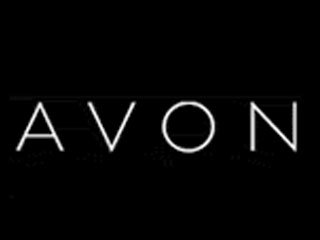Avon Products Inc. (NYSE: AVP), a company that sells cosmetics and beauty products directly to consumers through independent representatives, has been struggling for some time now. A fake takeover bid sent shares flying last month, but the fallout from the hoax obscures the company’s underlying problems.
The U.S. Securities and Exchange Commission (SEC) is now filing lawsuits against several Romanian financial companies over the hoax, which involved a fake $8.2 billion buyout offer for Avon, sending shares up by some 20%. The bid represented a huge premium over the company’s stock price, but Avon quickly stated it had received no such offer and was not even sure if the company making it, PTG Capital Partners, even existed.
The SEC is accusing these Romanian financial firms of manipulating the market, but many are left wondering how the regulatory filing got through in the first place, especially considering the fact that it was riddled with typos and grammatical errors.
In any case, the matter has thrust Avon into the spotlight, and the fact remains that the company is simply not in good shape. This is reflected in its stock market performance. Over the past year, the stock is down nearly 55%. This year alone, it has lost 28.5% of its value.
ALSO READ: 3 Top Growth Stock Picks for This Week
After revenue peaked at around $11.3 billion in 2011, things started to go downhill quickly, annual revenue dropping every year. By 2014, this figure had fallen to around $8.85 billion, for a decrease of more than 20% over three years. Meanwhile, the company has turned in a net loss for the past three years straight, loss per share widening from $0.10 in 2012 to $0.88 in 2014.
Things do not seem to be improving much, either. For its latest earnings report, revenue tanked by 18% year over year, and the company reported another net loss, although this narrowed to $146 million from $167 million last year. At the same time, its balance sheet looks precarious, with $693 million in cash and nearly $2.6 billion in debt, and a debt-to-equity ratio of more than 20,000.
The struggles that the company faces largely boil down to one thing: its business model is simply becoming irrelevant. The system of independent representatives visiting people’s homes is looking outdated in an age in which cosmetics purchases can be made online, often at a lower price. Moreover, it was developed and popularized in an era when women generally stayed at home and were able to receive salespeople, which is often no longer the case.
As such, without a radical change in direction, it is likely that Avon Products will continue to see its revenue dwindle, and its share price along with it, as earnings are expected to be in the red again this fiscal year.
ALSO READ: The 9 Most Misleading Product Claims
Take Charge of Your Retirement In Just A Few Minutes (Sponsor)
Retirement planning doesn’t have to feel overwhelming. The key is finding expert guidance—and SmartAsset’s simple quiz makes it easier than ever for you to connect with a vetted financial advisor.
Here’s how it works:
- Answer a Few Simple Questions. Tell us a bit about your goals and preferences—it only takes a few minutes!
- Get Matched with Vetted Advisors Our smart tool matches you with up to three pre-screened, vetted advisors who serve your area and are held to a fiduciary standard to act in your best interests. Click here to begin
- Choose Your Fit Review their profiles, schedule an introductory call (or meet in person), and select the advisor who feel is right for you.
Why wait? Start building the retirement you’ve always dreamed of. Click here to get started today!
Thank you for reading! Have some feedback for us?
Contact the 24/7 Wall St. editorial team.

